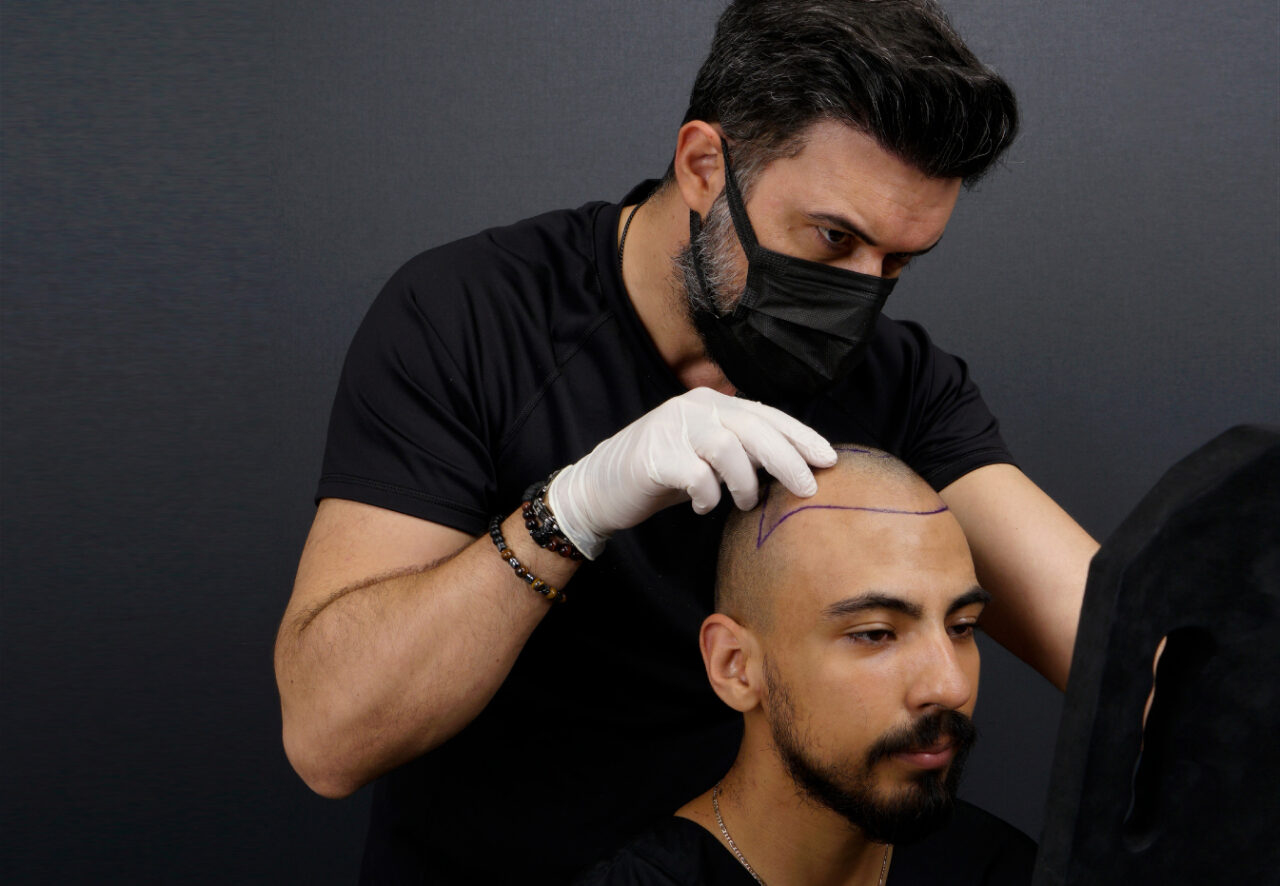Hair transplant in Turkey: A treatment for men’s hair loss

Being confronted with thinning hair or hair loss is a common concern for many men. Exploring non-surgical therapy alternatives could lead to the reduction or even reversal of hair loss. Options range from medical therapies to hair transplant procedures in Turkey, offering a variety of solutions depending on the individual’s level of hair loss.
Throughout a man’s life, over 80% are likely to experience hair loss, with approximately 50% over the age of 50 affected.
While hair loss is generally not a cause for alarm, it can prove distressing for some. Treatments may be beneficial depending on the specific type of hair loss experienced.
What causes men’s hair loss?
Hair loss is a part of daily life, with the average individual losing 50-100 strands per day. This natural shedding typically goes unnoticed due to new hair growing simultaneously. However, hair loss becomes noticeable when new hair growth fails to replace fallen strands. Common causes of hair loss include:
Family history
Hereditary hair loss is the predominant cause of hair loss. This indicates that the individual inherited genes that result in hair follicles shrinking, eventually ceasing hair growth.
Ageing
With ageing, hair thinning occurs naturally. Over time, hair development decreases, and hair follicles cease to produce hair, leading to thinning hair on the scalp.
Alopecia areata
This and other medical conditions, such as scarring alopecia, trichotillomania (a chronic hair-pulling disorder), and thyroid issues, can result in hair loss.
Scalp infections
Infections like ringworm, or scalp psoriasis, can cause hair loss.
Medication
Some drugs, such as those used for arthritis, heart disease, depression, high blood pressure, and gout, may cause hair loss as a side effect.
Cancer treatment
Hair loss can occur within weeks of starting chemotherapy or radiotherapy, particularly affecting the head and neck areas.
Stress
Acute stress can sometimes trigger temporary hair thinning.
Nutrient deficiencies
Shortages of nutrients like iron, zinc, or biotin can cause noticeable hair loss.
Cutting-edge hair transplant techniques in Turkey are available to combat male hair loss
Various forms of male hair loss exist. However, the most prevalent type is male pattern baldness, affecting up to 80% of men by the age of 80. This type includes thinning hair at the crown and a receding hairline.
Male hair loss can be classified into categories including:
• Male pattern hair loss
• Alopecia areata (hair loss)
• Telogen effluvium (a type of hair loss)
• Traction alopecia
Specialised hair loss clinics can offer numerous treatment options, many of which are simple and non-invasive.
Men’s hair loss treatment: Hair transplant in Turkey
Performed under local anaesthesia, hair transplant procedures involve the patient remaining conscious but not experiencing discomfort beyond the initial local anaesthetic injections.
Follicular unit transplantation (FUT) and follicular unit excision (FUE) are the two types of hair transplants for men.
The FUT hair transplant procedure, also known as the linear strip excision method, involves:
• A surgeon removing a thin strip of skin covered in hair from the back of the head.
• The strip is cut into grafts, each graft containing one to four hairs.
• The grafts are inserted into small incisions in the scalp by a surgeon.
The FUE hair transplant procedure includes the following steps:
• A surgeon extracts each healthy follicle individually from the back and sides of the scalp.
• These removed follicles are then transplanted into the receding hairline or crown using precise, sub-millimetre procedures.
• Specialised techniques ensure a natural and realistic look, ensuring the new hair growth aligns with the density, direction, and angulation of the existing hair.
There are physicians who specialise in FUE hair transplants in Turkey due to the realistic outcomes and reduced recovery time provided by this method. The results of an FUE hair transplant in Turkey can last anywhere from 15 years to a lifetime.
How can surgeons assist?
Several factors influence the best course of treatment following hair loss. By booking a consultation with a surgeon, a tailored hair transplant treatment plan can be developed.
Clinics tailor all treatments to the individual, offering a comprehensive aftercare and recovery plan to ensure the best possible result. For further information and assistance, please contact one of the specialist surgeons.
The editorial unit
























Facebook
Twitter
Instagram
YouTube
RSS